Estimated reading time: 13 minutes
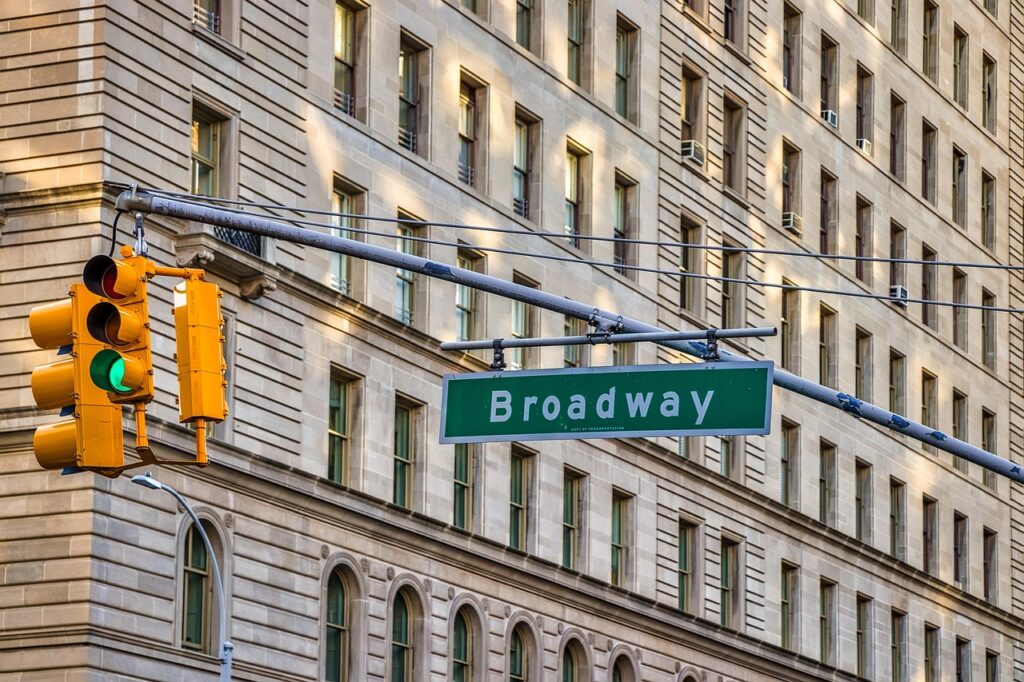
Moving to New York City or looking to plant roots for the long haul? You’re not alone. Every year, thousands of professionals, students, and dreamers make their way to the five boroughs in search of opportunity, culture, and that unmistakable New York energy. But before you can dive into all the city has to offer, you need to solve the ultimate New York puzzle: finding the right long-term stay.
The good news? With the right knowledge and approach, you can find a long-term apartment that fits both your lifestyle and budget. Let’s break down everything you need to know about long-term rentals in New York City.
Enjoy a Hassle-Free, High End Rental Experience in NYC for Stays of 1 Month or Longer.
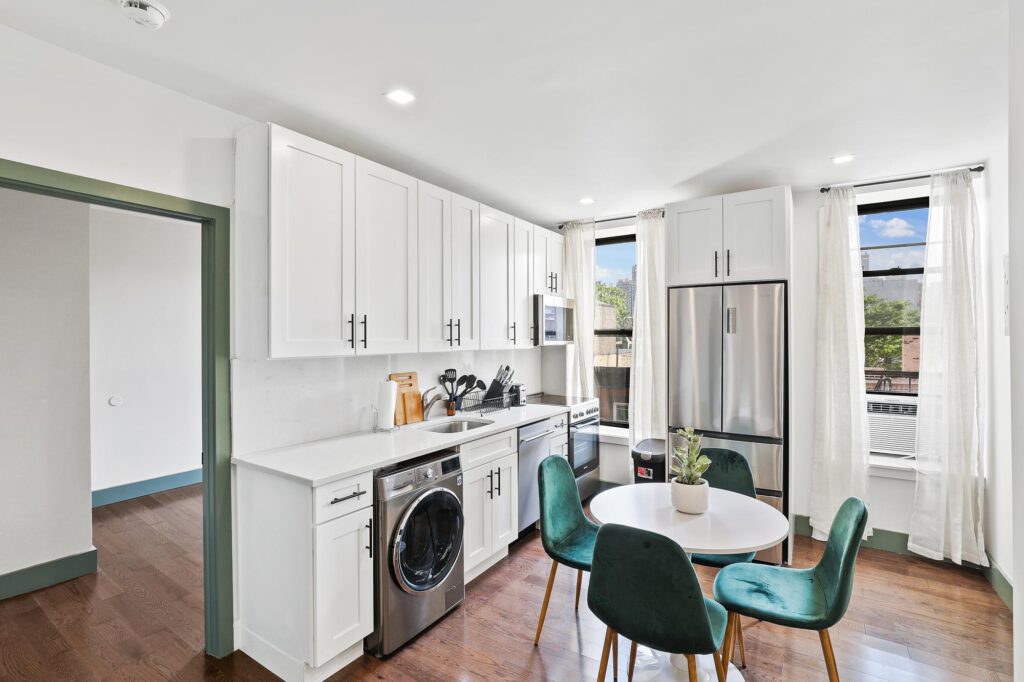
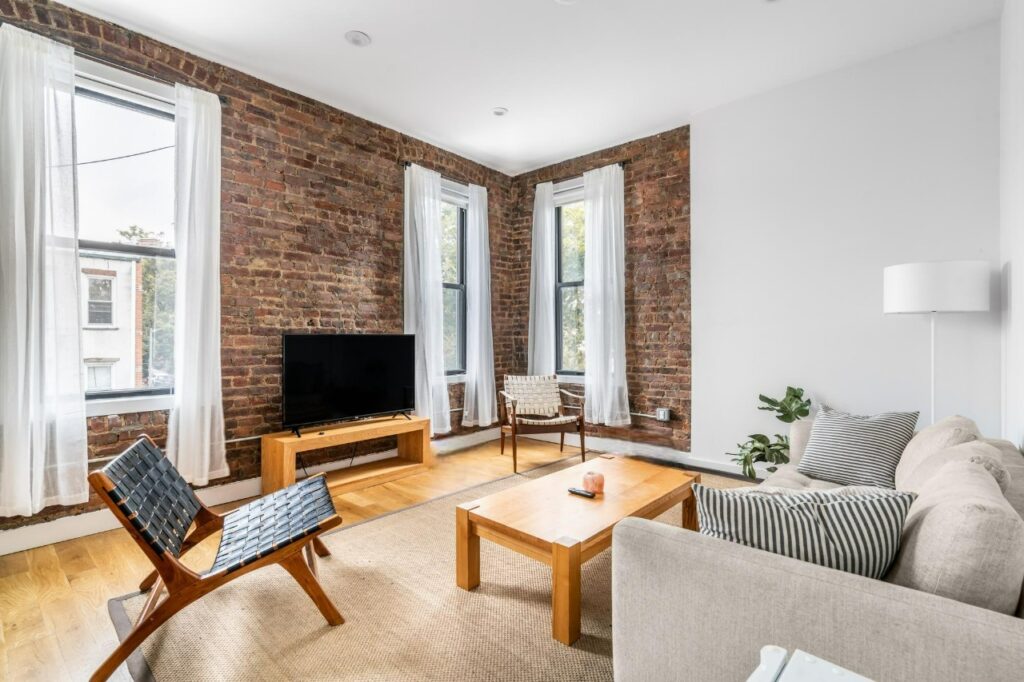
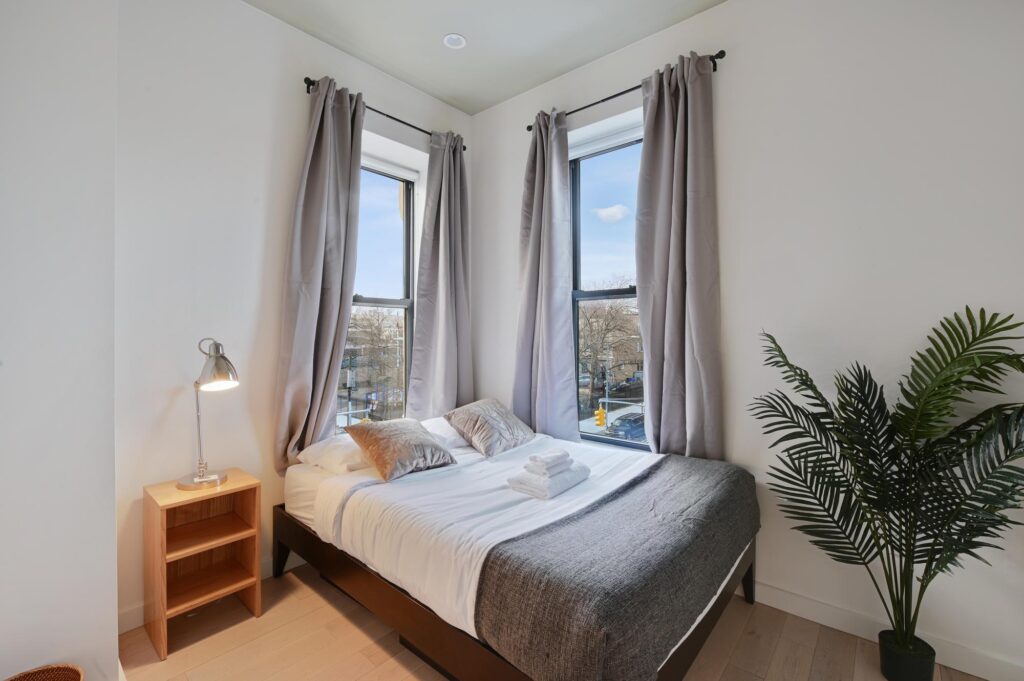
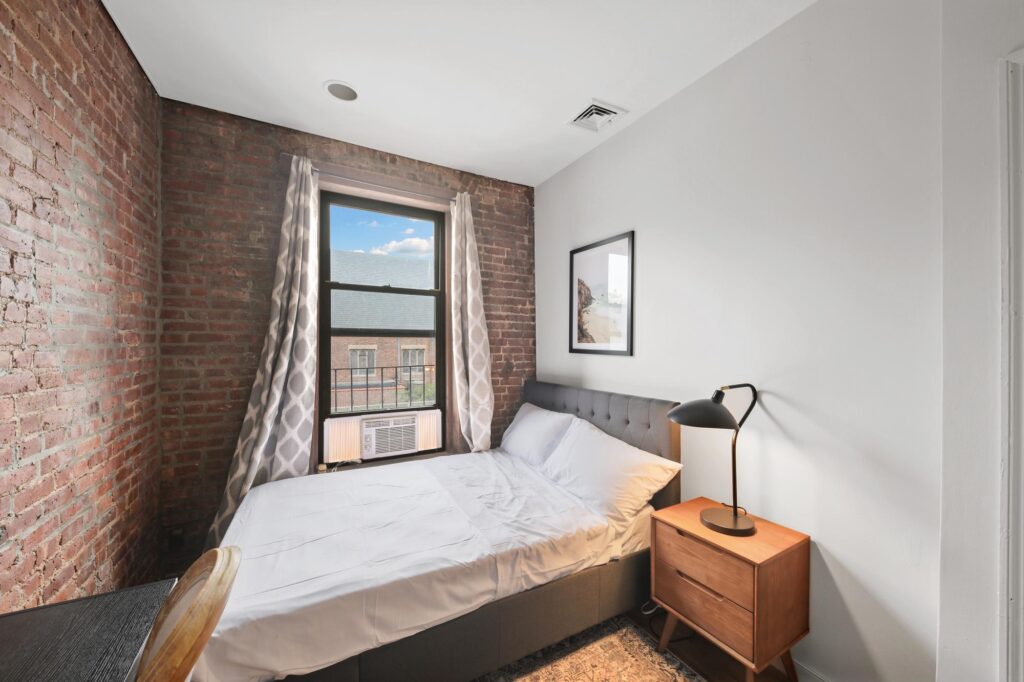

Fully-furnished New York rooms and apartments with flexible lease. Apply today and move in tomorrow.
What Qualifies as a Long-Term Rental in NYC?
In New York City, a long-term rental typically means a lease of 12 months or longer. This is the standard rental arrangement in the city and differs significantly from short-term rentals (usually under 30 days) and mid-term or flexible rentals (anywhere from 1 to 11 months).
Long-term leases are regulated differently than their shorter counterparts. In fact, NYC has strict laws around short-term rentals, making apartments rented for less than 30 days largely illegal in most buildings unless the permanent tenant is present. This makes long-term rentals the backbone of the city’s housing market.
Most landlords prefer long-term tenants because it provides stability and reduces turnover costs. For renters, committing to a year or more often means better deals, more housing options, and the peace of mind that comes with lease stability.
Benefits of Renting Long-Term in NYC
Lease Stability and Protection
When you sign a long-term lease in New York, you’re locking in your rent for the duration of the contract. That means even if rents in your neighborhood skyrocket, your landlord can’t increase your rent until your lease is up for renewal. For a city where rent can fluctuate dramatically from year to year, this stability is invaluable.
NYC also offers strong tenant protections under rent stabilization laws. While not every apartment is rent-stabilized, many long-term renters benefit from regulations that limit how much landlords can raise rent each year.
Cost Savings Over Time
Long-term rentals almost always cost less per month than short-term or furnished options. When you commit to a year or more, landlords can offer lower monthly rates because they’re guaranteed consistent income. You’ll also save on the premium pricing that comes with furnished apartments or month-to-month arrangements.
Additionally, many buildings offer incentives for signing longer leases, such as one or two months of free rent, waived application fees, or reduced security deposits. These concessions can translate to significant savings over the course of your lease.
Access to More Inventory
The majority of available apartments in NYC are offered as long-term rentals. When you’re searching for a 12-month lease, you’ll have access to the full market: walk-up buildings, luxury high-rises, pre-war gems, and everything in between. Short-term and mid-term options are far more limited and often concentrated in specific neighborhoods or building types.
Build a Home and Community
There’s something special about unpacking your boxes knowing you won’t have to move for at least a year. Long-term rentals give you the opportunity to really settle in, get to know your neighbors, discover your favorite local coffee shop, and become part of the fabric of your neighborhood. You’re not just passing through—you’re home.
The Drawbacks to Consider
Less Flexibility
The flip side of lease stability is commitment. If your job situation changes, you need to relocate, or you simply don’t like your apartment or neighborhood, breaking a lease can be complicated and expensive. Most landlords require you to pay rent until they find a replacement tenant, and some leases include hefty early termination fees.
That said, options like subletting (with landlord approval) or finding someone to take over your lease can provide some flexibility if your circumstances change.
Upfront Costs Can Be Steep
Long-term rentals in NYC often come with significant upfront costs. Between the first month’s rent, security deposit (usually one month’s rent), and broker fees (which can range from 10-15% of the annual rent), you could be looking at paying the equivalent of three to four months’ rent before you even move in.
Some landlords also require additional documentation, credit checks, and guarantor agreements if you don’t meet income requirements (typically 3x the monthly rent). For newcomers to the city or those with non-traditional income, this can be a barrier.
Unfurnished Is the Norm
Most long-term rentals in NYC are unfurnished, meaning you’ll need to buy or move your own furniture, kitchenware, and essentials. For someone relocating from out of state or internationally, this adds another layer of complexity and expense to the moving process.
If you’re looking for a furnished long-term option, you’ll have fewer choices, though some companies like June Homes specialize in flexible, furnished long-term rentals that bridge this gap.
How to Find Long-Term Rentals in NYC
Start With Online Listings
The usual suspects are June Homes, StreetEasy, Zillow, Apartments.com, and Craigslist. StreetEasy is particularly popular among New Yorkers for its comprehensive listings and neighborhood data.
Be cautious on Craigslist, as scams are common. Never wire money or pay a deposit without seeing the apartment in person or through a verified virtual tour.
Work With a Broker (Or Don’t)
Real estate brokers have access to listings that may not be publicly advertised, and they can help navigate the competitive NYC rental market. However, broker fees typically range from 10-15% of your annual rent, a cost that can add thousands of dollars to your moving expenses.
Some landlords list their apartments as “no-fee,” meaning they cover the broker’s commission. You can also search for buildings that are managed directly by landlords or property management companies, which often don’t require brokers.
Consider Flexible Long-Term Options
If the traditional rental process feels daunting, consider flexible rental companies that specialize in furnished apartments with straightforward lease terms. These options often come with less paperwork, no broker fees, and move-in-ready spaces, perfect for anyone who needs to secure housing quickly or doesn’t want to deal with furnishing an apartment from scratch.
Visit Neighborhoods in Person
Every neighborhood in NYC has its own personality, and what looks good on paper might not feel right when you’re actually there. Spend time walking around prospective neighborhoods at different times of day. Check out the local amenities, public transportation access, and overall vibe before committing.
Understand Your Budget
Before you start apartment hunting, use a rent calculator to determine what you can realistically afford. Financial experts generally recommend spending no more than 30% of your gross monthly income on rent, though in NYC, that number often creeps higher.
Most landlords require tenants to earn at least 40 times the monthly rent annually. If you don’t meet this threshold, you may need a guarantor—someone (often a parent or family member) who agrees to cover your rent if you can’t.
Tips for Navigating NYC Long-Term Leases
Read the Fine Print
NYC leases can be lengthy and filled with legal jargon. Pay special attention to clauses about rent increases, lease renewal terms, subletting policies, and what happens if you need to break your lease early. Don’t be afraid to ask questions or request clarification on anything you don’t understand.
Document Everything
Before moving in, document the condition of your apartment with photos and videos. This protects you when it’s time to move out and ensures you get your security deposit back. Note any existing damage, wear and tear, or maintenance issues in writing and provide a copy to your landlord.
Understand Rent Stabilization
Some NYC apartments are rent-stabilized, meaning landlords can only raise rent by a set percentage each year as determined by the Rent Guidelines Board. If your apartment is rent-stabilized, you have additional protections and rights. Ask your landlord or check public records to find out if your unit qualifies.
Plan for Rent Increases
Even if your apartment isn’t rent-stabilized, it’s wise to budget for potential rent increases when your lease comes up for renewal. Rent increases in popular neighborhoods can range from 3-10% or more, depending on market conditions.
Know Your Rights
New York has strong tenant protection laws. Familiarize yourself with your rights regarding habitability standards, repairs, privacy, and eviction procedures. Resources like the NYC Tenant’s Rights Guide and local tenant advocacy organizations can be invaluable.
How Much Should You Budget for Long-Term Rentals?
The cost of long-term rentals in NYC varies dramatically by neighborhood, apartment size, and building amenities. Here’s a general breakdown of what you can expect:
- Studios: $2,000-$3,500+
- One-bedrooms: $2,800-$5,000+
- Two-bedrooms: $4,000-$8,000+
- Studios: $1,600-$2,800+
- One-bedrooms: $2,000-$3,800+
- Two-bedrooms: $2,800-$5,500+
Use a rent-to-income ratio calculator to determine what’s financially sustainable for your situation. Remember to factor in utilities, internet, renter’s insurance, and other monthly expenses when setting your budget.
If you’re moving with roommates, a rent split calculator can help ensure everyone pays a fair share based on room size and amenities.
Alternatives to Traditional Long-Term Rentals
Flexible Furnished Rentals
For those who want the stability of a long-term lease without the hassle of furnishing an apartment or dealing with broker fees, flexible furnished rentals are an excellent middle ground. Companies like June Homes offer move-in-ready apartments with flexible lease terms, all-inclusive pricing, and simplified application processes.
These options are particularly appealing to relocating professionals, international students, or anyone who needs to get settled quickly without compromising on quality or location.
Room Rentals
If you’re on a tight budget or new to the city, renting a room in a shared apartment can be a great way to save money while still living in a desirable neighborhood. Room rentals are especially popular among students, recent graduates, and young professionals.
Sites like June Homes, SpareRoom, Roomi, and even Facebook groups can connect you with people looking for roommates. Just be sure to meet potential roommates in person and see the space before committing. For more guidance, check out where to find rooms for rent in Brooklyn.
When Is the Best Time to Rent in NYC?
Timing can make a significant difference in both availability and pricing. The NYC rental market has distinct seasonal patterns:
Peak Season (May-September): This is when the market is most competitive, with the highest volume of available apartments but also the most competition. Rents tend to be at their highest, and landlords are less likely to negotiate.
Off-Peak Season (October-April): Fewer people are moving during the colder months, which means less competition and more negotiating power for renters. Landlords may be more willing to offer concessions like free months or reduced rent to fill vacant units.
For more detailed insights, read about the best time of year to rent in NYC.
Common Long-Term Rental Mistakes to Avoid
Skipping the Apartment Visit
Never sign a lease without seeing the apartment in person or through a verified virtual tour. Photos can be misleading, and you need to check for issues like noise, natural light, building condition, and neighborhood feel.
Ignoring the Commute
A great apartment in a great neighborhood loses its appeal if your daily commute is brutal. Test your commute during rush hour before committing. New Yorkers spend a lot of time on the subway—make sure your route is manageable.
Underestimating Upfront Costs
Sticker shock is real when it comes to NYC move-in costs. Make sure you have enough saved for first month’s rent, security deposit, potential broker fees, moving costs, and initial furnishings if needed.
Not Asking About Utilities
Some NYC rentals include utilities (heat, hot water, gas), while others don’t. Make sure you understand what’s included in your rent and budget accordingly. In older buildings, heating costs in winter can be surprisingly high.
FAQ: Long-Term Rentals in NYC
How long is a long-term rental in NYC?
A long-term rental in New York City is typically 12 months or longer. This is the standard lease term and differs from short-term rentals (under 30 days) and mid-term or flexible rentals (1-11 months). Most landlords prefer annual leases, though some may offer 18 or 24-month terms.
Are long-term rentals cheaper than short-term in NYC?
Yes, long-term rentals are almost always significantly cheaper than short-term options on a monthly basis. Short-term rentals in NYC are heavily regulated and often illegal, which limits supply and drives up prices. Long-term leases offer better value because landlords can count on stable, consistent income.
Do you need a broker to find long-term rentals in NYC?
Not necessarily. While brokers can help navigate the market and access exclusive listings, many apartments are available as no-fee rentals directly from landlords or management companies. You can also use online platforms like StreetEasy to search for no-fee apartments. However, in competitive neighborhoods, working with a broker may give you an edge.
What credit score do you need to rent in NYC?
Most landlords prefer a credit score of 650 or higher, though requirements vary. Some luxury buildings may require scores of 700+, while others are more flexible. If your credit isn’t ideal, having a guarantor or offering a larger security deposit can help strengthen your application.
Can you negotiate rent in NYC?
Yes, especially during off-peak months or if an apartment has been on the market for a while. You can negotiate the monthly rent, request one or more free months, ask for waived fees, or negotiate the terms of renewal increases. Landlords are often more willing to negotiate when they’ve had trouble filling a unit.
What documents do you need to rent an apartment in NYC?
Standard documents include proof of income (pay stubs or employment letter), bank statements, tax returns, photo ID, rental history/references, and a completed rental application. Some landlords also require a credit check authorization and guarantor information if you don’t meet income requirements.
Are furnished long-term rentals available in NYC?
Yes, though they’re less common than unfurnished options. Some companies specialize in furnished long-term rentals with flexible lease terms, which can be ideal for relocating professionals, international residents, or anyone who doesn’t want the hassle of furnishing an apartment.
How much does it cost to move into a long-term rental in NYC?
Expect to pay first month’s rent, one month security deposit, and potentially a broker fee (10-15% of annual rent if applicable). For example, on a $3,000/month apartment with a broker, you might need $12,600-$13,500 upfront. No-fee apartments require significantly less, typically just 2-3 months’ rent.
Finding Your Long-Term Home in NYC
Securing a long-term rental in New York City is a milestone, it means you’re ready to truly experience everything this incredible city has to offer. Whether you’re drawn to the cultural institutions of the Upper West Side, the creative energy of the East Village, the historic brownstones of Bed-Stuy, or the residential charm of Hamilton Heights, there’s a neighborhood and an apartment waiting for you.
The key is to start your search with clear priorities, a realistic budget, and patience. Use the resources available to you: from neighborhood guides to rent calculators, and don’t be afraid to ask questions throughout the process.
And if the traditional rental process feels overwhelming, remember that there are alternatives. Flexible, furnished long-term rentals can offer the stability of a long-term lease with the convenience and simplicity you need to start your New York story without the stress.
Welcome home.
